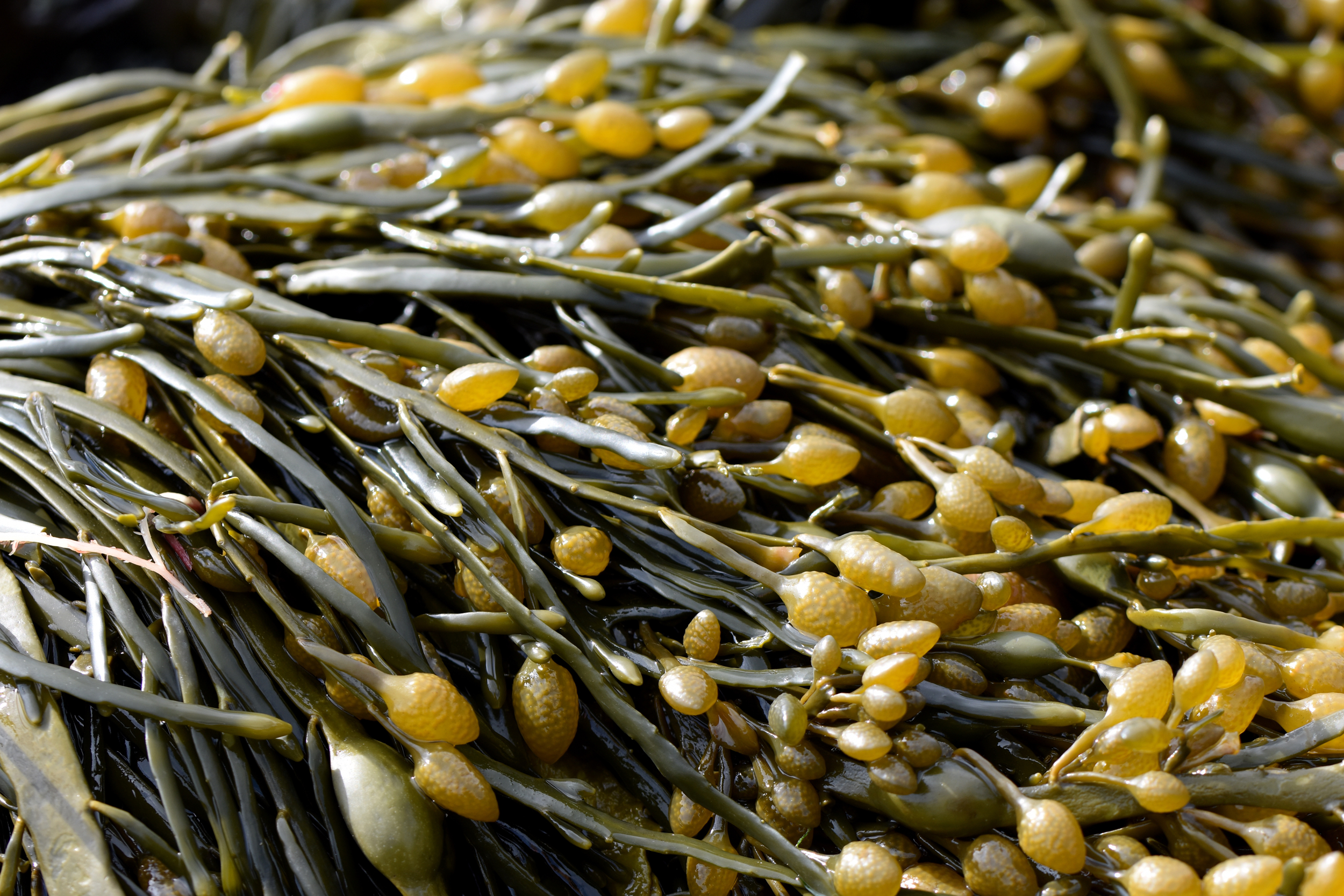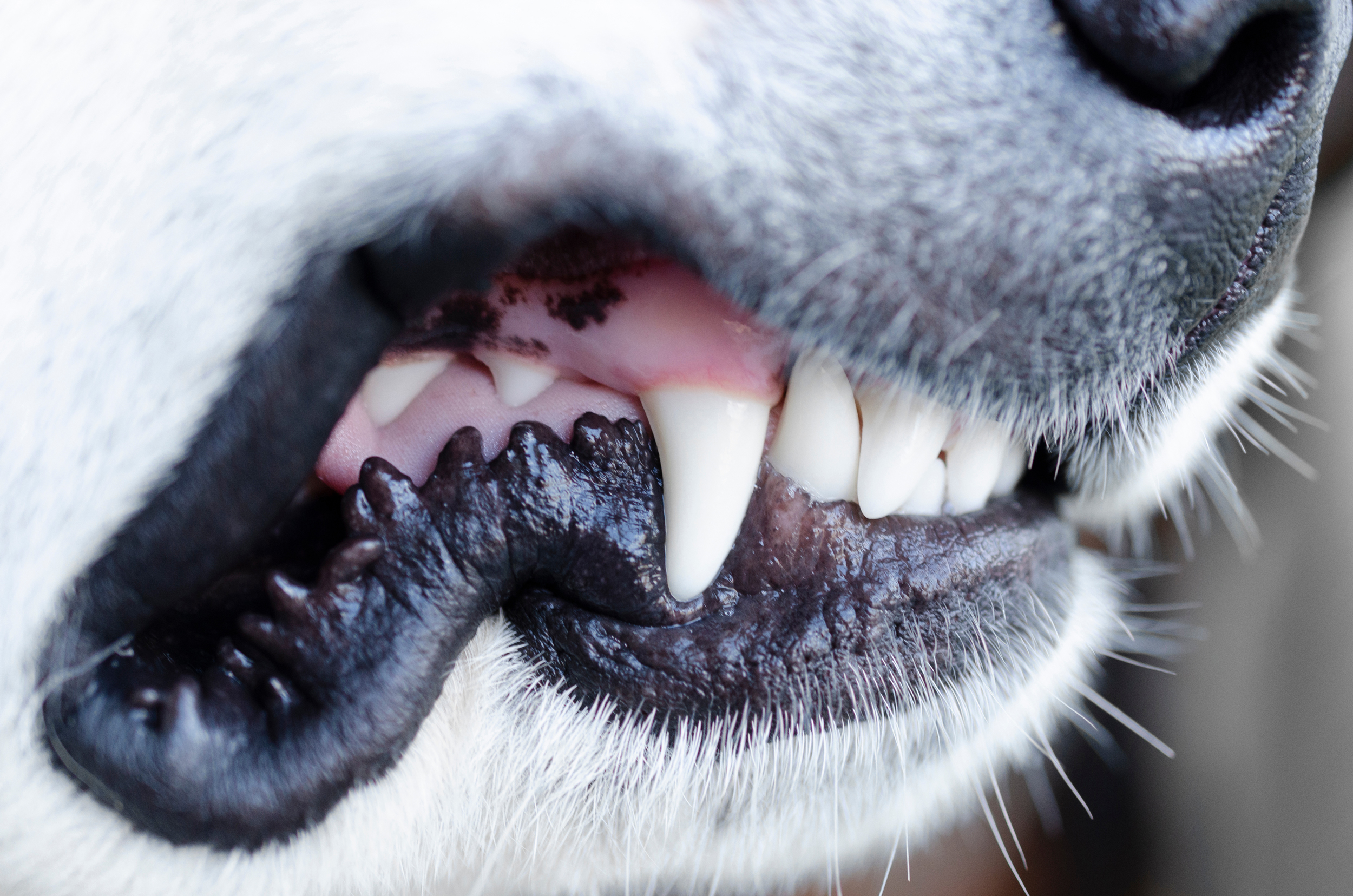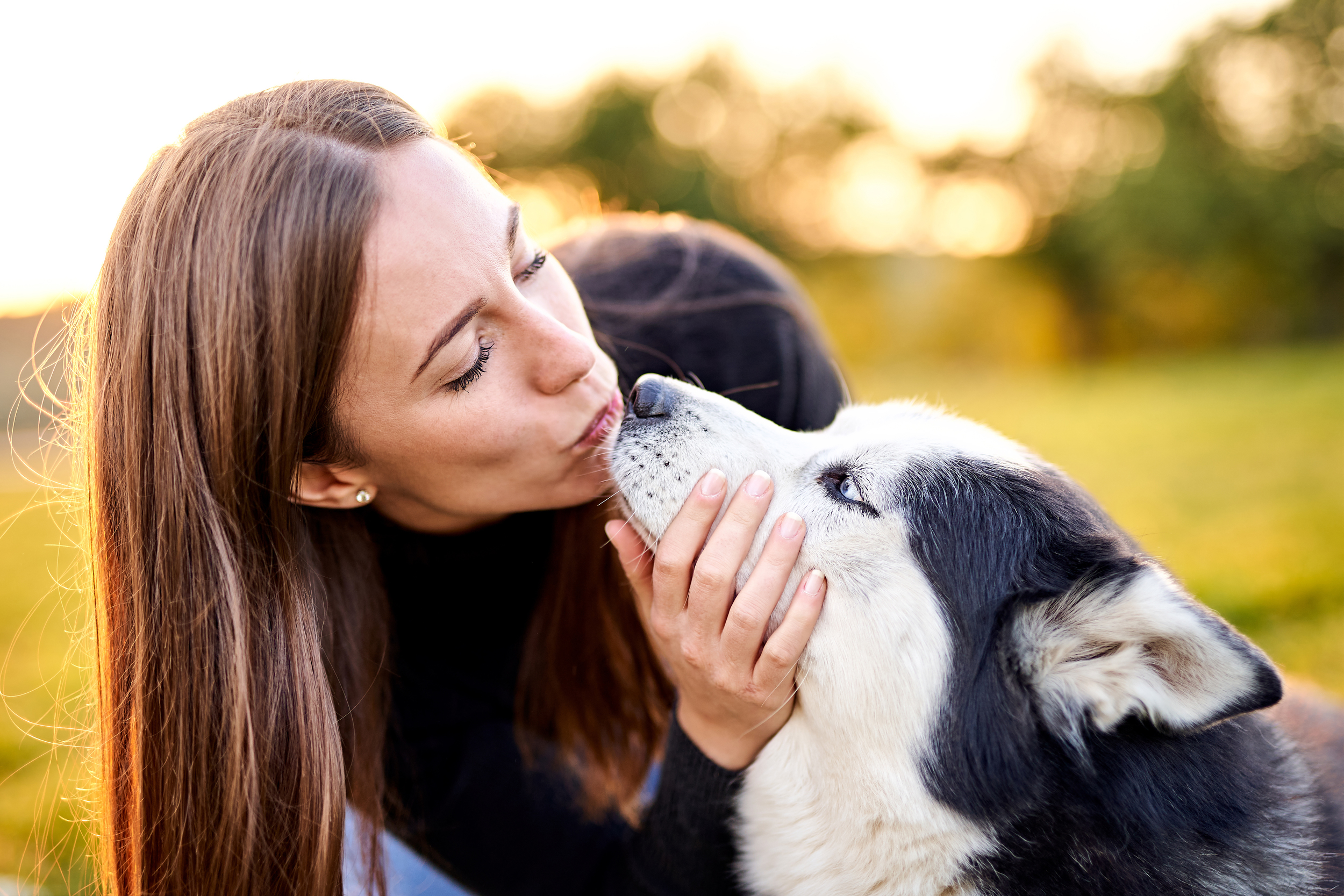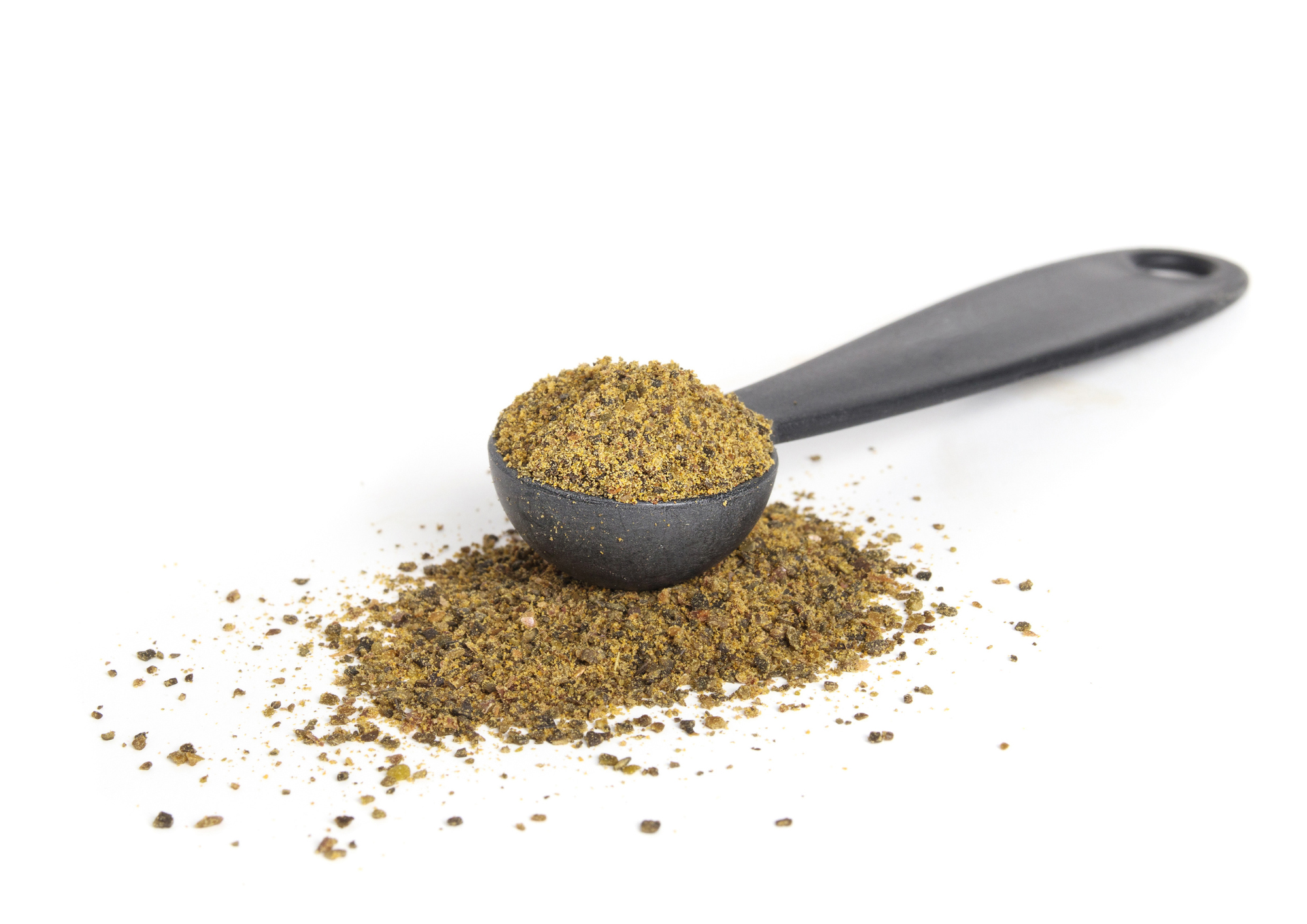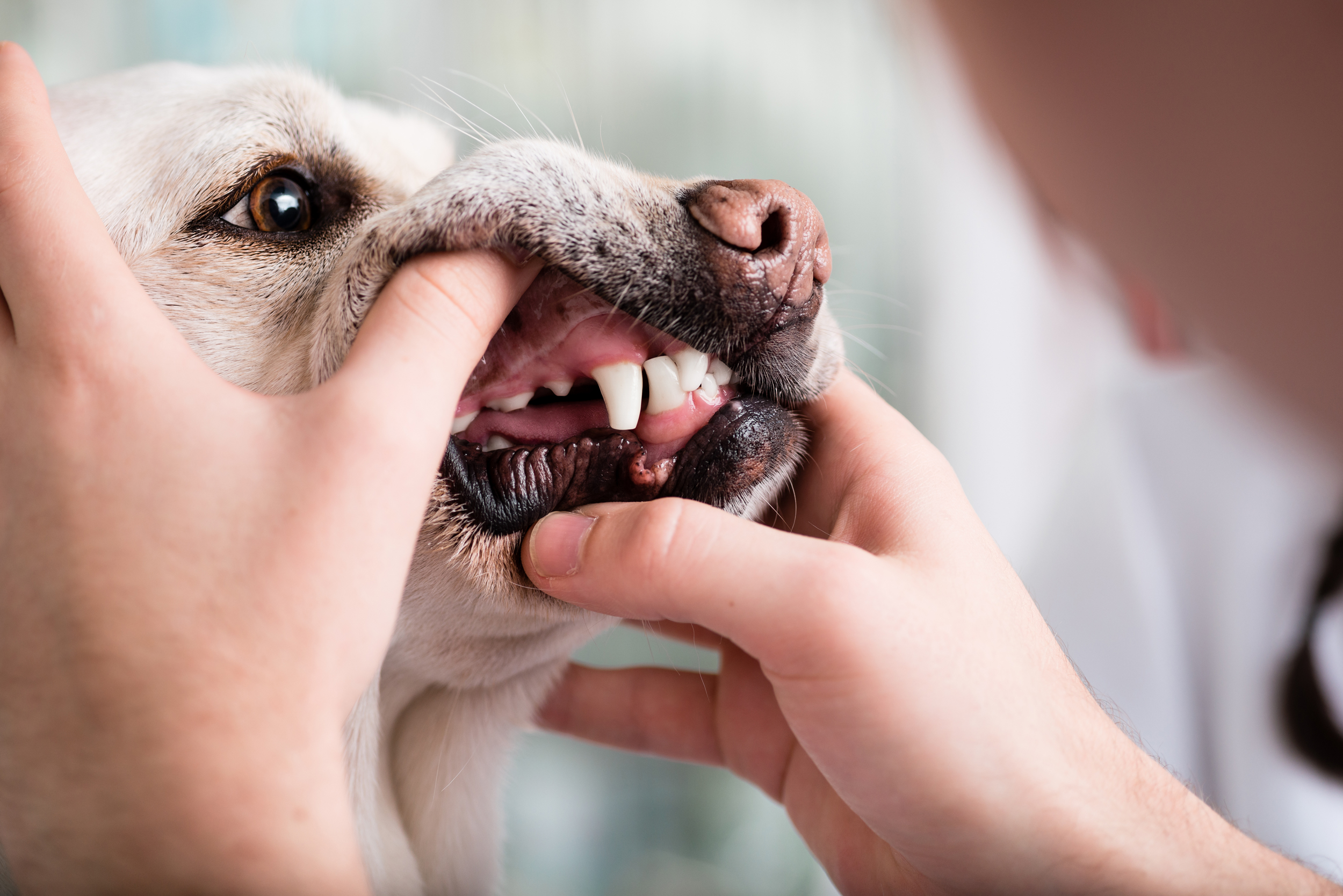Welcome to our comprehensive guide on the dental health benefits of seaweed for dogs. In this article, we’ll explore the world of Ascophyllum Nodosum, exploring its nutritional profile, advantages for canine oral health, how it works, administration methods, potential side effects, and real-life success stories. Get ready to unlock the benefits of this remarkable seaweed for your dog’s dental health!
Did you know good oral health is crucial for your dog’s well-being? Just like humans, dogs can suffer from dental problems, leading to serious health issues if left untreated. One natural solution to help maintain your furry friend’s dental health is Ascophyllum Nodosum for dogs, a cold-water seaweed with proven dental benefits in humans, dogs and cats.
Key Takeaways
Ascophyllum Nodosum, a nutrient-dense brown alga from the Fucaceae family, is the sole species within the Ascophyllum genus. It is recognised for its potential to support and improve dental health in dogs and cats.
Its nutritional profile includes bio-actives such as fucoidans and polyphenols, vitamins and minerals, which are systemically absorbed into the body tissues and clinically proven to reduce oral plaque, inhibit tartar buildup, improve gum health, promote healthy teeth and freshen breath.
Understanding Ascophyllum Nodosum
Ascophyllum Nodosum is a type of cold-water seaweed that has gained recognition for its potential benefits in maintaining and improving oral health in dogs. Dental issues in dogs can lead to periodontal disease, which may cause pain, tooth loss, and even systemic diseases if left untreated.
Enter Ascophyllum Nodosum – a powerful ally in plaque reduction, preventing dental disease and promoting optimal dental health in your furry friend.
What is Ascophyllum Nodosum?
Ascophyllum Nodosum is a nutrient-rich brown seaweed packed with essential nutrients, vitamins, and minerals that thrives in cold waters. Its unique properties have been found to be beneficial for pet’s dental health and oral hygiene, including:
- Inhibiting bacterial growth
- Preventing dental disease
- Stronger cleaner teeth
- Freshening breath
- Reducing plaque and tartar buildup
- Promoting healthy gums
Integrating this seaweed into your dog’s diet can provide these benefits.
Nutritional Profile
Ascophyllum Nodosum provides a rich source of essential nutrients that benefit dental health and oral hygiene:
Iodine: Ascophyllum nodosum is a natural source of iodine, an essential trace element required for the proper function of the thyroid gland. Regular intake can help prevent iodine deficiency.
Fucoidan: This is a complex polysaccharide found in Ascophyllum nodosum, and it has shown potential in various therapeutic applications, including anti-viral, anti-tumor, and immune-modulating effects.
Polyphenols: Some studies suggest that Ascophyllum nodosum can reduce inflammation. This is attributed to its polyphenol content, which can modulate inflammatory pathways in the body.
Phlorotannins: The seaweed is rich in antioxidants, including phlorotannins, which can combat oxidative stress. Oxidative stress is a key factor in the onset of various chronic diseases, and antioxidants play a role in neutralising harmful free radicals.
Bacillus licheniformis: is a naturally occurring bacterium that, when ingested, produces enzymes that can break down bacterial biofilms. In the context of dental health, these biofilms are commonly known as plaque, which is a primary cause of dental disease. By reducing the formation of dental plaque, there’s a subsequent reduction in the mineralisation of this plaque to tartar (or calculus). Tartar buildup is harder and more challenging to remove than plaque and can lead to gum diseases if not addressed. By inhibiting certain harmful bacteria, Bacillus licheniformis can help maintain a balanced oral microbiome in dogs. A balanced microbiome is essential for preventing the overgrowth of harmful bacteria that can lead to gum and dental disease.
Advantages of Ascophyllum Nodosum for Dogs’ Dental Health
Including Ascophyllum Nodosum in your dog’s daily diet can substantially enhance their dental health. This natural seaweed supplement has been found to reduce plaque and tartar buildup, freshen breath, and promote gum health in dogs. Generally, a dog’s dental health improves within 3-12 weeks of consistent daily use.
Studies have demonstrated that Ascophyllum Nodosum supplementation can improve the oral health index (OHI) in dogs, cats, and humans. Giving your dog this natural supplement aids in maintaining a healthy mouth while avoiding the complications associated with poor oral hygiene and dental disease.
Plaque and Tartar Reduction
Regular use of Ascophyllum Nodosum can help decrease plaque and tartar buildup on your dog’s teeth. This is attributed to the presence of alginic acid, a compound naturally present in seaweed. Alginic acid weakens plaque adhesion, reducing plaque accumulation and calculus in dogs.
Maintaining minimal plaque and tartar buildup is crucial for a dog’s oral health, as unchecked accumulations can escalate to periodontal disease, the most common oral disease in humans and dogs. Incorporating Ascophyllum Nodosum into your dog’s diet effectively promotes a cleaner and healthier oral environment.
Freshens Breath
No one likes doggy breath, but thankfully, Ascophyllum Nodosum can help with that, too! This seaweed supplement has neutralised bad odours in dogs’ mouths, resulting in fresher breath.
With continued daily use, you can expect a decrease in bad breath (halitosis) within 3-5 weeks and up to 68% within 12 weeks. So, your dog’s oral health will improve, and you’ll also enjoy their fresher breath.
Promotes Gum Health
Healthy gums are crucial for maintaining strong teeth and preventing dental disease. One of the primary benefits of Ascophyllum Nodosum is its ability to help reduce plaque and tartar buildup on the teeth. Less accumulation of plaque and tartar means healthier gums since these deposits can cause gum irritation and inflammation if left unchecked. Ascophyllum Nodosum possesses natural antimicrobial properties, which can aid in balancing the oral microbiome by inhibiting the growth of harmful bacteria. A balanced oral microbiome is crucial for gum health. While its anti-inflammatory compounds can help reduce gum inflammation, commonly seen in conditions like gingivitis.
Providing your dog with this natural supplement promotes optimal oral health and assists in periodontal disease prevention and maintaining strong teeth and gums. An oral health assessment, including a prophylactic dental procedure and several dental health indices, can further ensure your dog’s oral health status and dental well-being, even for those with the poorest oral health.
How Ascophyllum Nodosum Works
The benefits of Ascophyllum Nodosum for dogs’ dental health can be attributed to its unique mode of action. This seaweed supplement works systemically with the saliva to actively inhibit the formation of bacteria, plaque, and tartar on the teeth and suppresses sulfur-producing bacteria responsible for bad breath.
Inhibiting Bacterial Growth
Ascophyllum Nodosum targets harmful bacteria in dogs’ mouths, preventing dental issues. Research has demonstrated that this seaweed can impede bacterial growth in dogs, thus proving successful in preventing periodontal diseases and decreasing plaque and tartar buildup on teeth.
Ascophyllum Nodosum maintains a healthy oral environment for your pet by inhibiting the growth of pathogenic bacteria.
Strengthening Teeth and Gums
In addition to inhibiting bacterial growth, Ascophyllum Nodosum also supplies essential vitamins, minerals, and amino acids that are crucial for optimal dental health. These nutrients support stronger teeth and gums in dogs, promoting overall oral health and preventing tooth decay, gum disease, and other oral health issues.
Adding Ascophyllum Nodosum to your dog’s diet aids in maintaining strong teeth and gums, contributing significantly to their overall health and well-being.
Administering Ascophyllum Nodosum to Your Dog
If you’re contemplating the addition of Ascophyllum Nodosum to your dog’s diet, familiarise yourself with the available forms and recommended dosages based on their weight. This will ensure that you provide your dog with the appropriate amount to reap the oral health benefits of this natural supplement.
Supplement Forms
Ascophyllum Nodosum is available in various forms, including edible powder and dental sticks. These forms make it easy to incorporate the supplement into your dog’s diet, either by adding it to their food or giving it as a treat.
If you’re looking for an effective Ascophyllum Nodosum powder supplement for dogs and cats, DentaMax is a vet-recommended completely natural product that works systemically to aid oral health. The specially selected Norwegian Seaweed in DentaMax has been shown to reduce plaque buildup by up to 35% after just 4 weeks and reduce bad breath by up to 63% after 12 weeks.
Regardless of the form you choose, the essential nutrients present in Ascophyllum Nodosum are clinically proven to help improve your dog’s oral health.
Dosage, Frequency and Natural Iodine Content
When administering DentaMax Ascophyllum Nodosum seaweed, following the recommended dosage and frequency guidelines based on your dog’s weight is crucial. The safe upper limit for iodine in dogs isn’t universally agreed upon, and the tolerable amount may vary based on the dog’s size, age, overall health, and diet.
The FEDIAF (European Pet Food Industry Federation) provides guidelines on nutrient requirements for dogs and cats and recommends the following daily amounts of iodine for dogs:
- Growth and Reproduction:
- Minimum: 150 µg (micrograms) per kg of body weight
- Maximum: 2,000 µg (micrograms) per kg of body weight
- Adult Maintenance:
- Minimum: 150 µg (micrograms) per kg of body weight
- Maximum: 1,200 µg (micrograms) per kg of body weight
The Recommended Daily Serving of DentaMax for Pets up to 10kg and its Iodine Content:
- Loading Dose: 1 gram (⅓ level scoop) Contains 650 µg (micrograms) of natural iodine (Less than 5% of the FEDIAF maximum daily allowance for adult maintenance).
- Maintenance Dose: ½ gram (⅙ level scoop) contains 325 µg (micrograms) of natural iodine (Less than 3% of the FEDIAF maximum daily allowance for adult maintenance).
The Recommended Daily Serving of DentaMax for Pets up to 25kg and its Iodine Content:
- Loading Dose: 2 grams ( ⅔ level scoop) contains 1300 µg (micrograms) of natural iodine (Less than 5% of the FEDIAF maximum daily allowance for adult maintenance).
- Maintenance Dose:1 gram (⅓ level scoop) contains 650 µg (micrograms) of natural iodine (Less than 3% of the FEDIAF maximum daily allowance for adult maintenance).
The Recommended Daily Serving of DentaMax for Pets 25kg+ and its Iodine Content:
- Loading Dose: 3 grams ( 1 level scoop) contains 1950 µg (micrograms) of natural iodine (Less than 5% of the FEDIAF maximum daily allowance for adult maintenance).
- Maintenance Dose: 2 grams (⅔ level scoop) contains 1300 µg (micrograms) of natural iodine (Less than 3% of the FEDIAF maximum daily allowance for adult maintenance).
Adherence to these evidence-based medicine standards and FEDIAF guidelines will ensure the provision of the optimal amount of Ascophyllum Nodosum for your dog’s oral health maintenance and overall well-being.
Potential Side Effects and Precautions
Like any supplement, there are potential side effects and precautions to consider when using Ascophyllum Nodosum for your dog. These can include:
- possible rashes
- itchy skin
- diarrhoea
- allergic reactions
If you observe any symptoms in your dog that suggest iodine imbalance, it’s essential to discontinue their iodine intake and seek advice from a veterinarian.
Iodine Intake
One of the primary concerns when using Ascophyllum Nodosum is its high natural iodine content.
Iodine is an extremely important mineral to include in your dog’s diet. It has many uses in the body and is the backbone of many bodily functions. Iodine is a trace mineral that the body cannot make. As it is so important and cannot be produced by the body, it must be consumed in the diet of all mammals.
However, excessive iodine intake from supplementation may cause hyperthyroidism in dogs, which is characterised by symptoms such as:
- weight loss
- increase in metabolic rate
- swelling of the neck and thyroid gland
- excessive urination
- excessive thirst
- excessive defecation
- choking and/or vomiting
Monitoring iodine intake and seeking veterinary consultation is necessary if you suspect your dog may be experiencing any of these symptoms. Proper monitoring and dosage adjustments can help you maintain your dog’s health while reaping the benefits of Ascophyllum Nodosum.
Benefits of Dental Sticks and Dental Treats with Ascophyllum Nodosum for Dogs
Dental sticks and treats containing Ascophyllum Nodosum offer many benefits for your dog’s oral health beyond just cleaning teeth. Here’s what you can expect:
1. Inhibition of Bacterial Growth
This natural seaweed inhibits bacterial growth in the mouth. By restricting bacteria, it helps prevent plaque deposits and reduce the bacteria that cause bad breath.
2. Reduction of Plaque and Tartar
Ingredients like Sodium Tripolyphosphate are often included in dental sticks. This compound helps prevent plaque from hardening into tartar, which can be much more difficult to remove. Plaque is softer and can be more easily addressed through daily oral hygiene practices, including the use of dental sticks.
3. Odour Control
Zinc Sulphate is another key ingredient commonly found in these dental sticks. It targets the bacteria on the back of your dog’s tongue, which produce volatile sulfur compounds. These compounds are a significant cause of foul-smelling breath.
4. Gentle Abrasion
The texture and shape of dental sticks with Ascophyllum Nodosum provide gentle abrasion. This mechanical action helps clean your dog’s teeth effectively, preventing plaque and tartar buildup.
Other Health Benefits
- Improved Digestion Some dental sticks and dental treats with Ascophyllum Nodosum include fibre that aids digestion, ensuring your dog’s optimal gastrointestinal health.
- Boosted Immunity Many formulations add vitamins and minerals that contribute to an overall healthier immune system, giving your dog additional protection against various illnesses.
Final Thoughts
Incorporating dental sticks and treats containing Ascophyllum Nodosum into your dog’s daily routine promotes better oral hygiene and supports overall health. From inhibiting bacterial growth to reducing the buildup of plaque and tartar, these dental sticks offer multiple benefits that go beyond maintaining a healthy smile for your furry friend.
What Are the Ingredients in Dental Sticks That Contain Ascophyllum Nodosum?
Dental sticks enriched with Ascophyllum Nodosum boast a unique blend of ingredients to promote your dog’s oral health. Here’s a breakdown of the key components typically found in these dental sticks:
- Ascophyllum Nodosum (Natural Seaweed): This remarkable kelp variety plays a crucial role in inhibiting bacterial growth, thereby helping to restrict plaque deposits and combat bad breath.
- Sodium Tripolyphosphate: This ingredient helps to prevent plaque from transforming into tartar. Plaque is a soft, sticky film that forms on teeth and gums and is easier to clean. If left untreated, plaque hardens into tartar, which is much more challenging to remove.
- Zinc Sulphate: Essential for inhibiting bacteria that cause plaque and tartar buildup, zinc also targets bacteria on the back of the tongue that produce volatile sulfur compounds, a common source of bad breath.
These ingredients work synergistically, providing a comprehensive approach to maintaining your dog’s dental hygiene.
Consultation with a Veterinarian
As with any dietary supplement, it’s important to consult a veterinarian before introducing Ascophyllum Nodosum to your dog’s diet. Your veterinarian can guide the recommended dosage and potential interactions with other medications or supplements your dog may be taking.
Additionally, they can help evaluate the origin of the Ascophyllum Nodosum to ensure it comes from a pristine and uncontaminated water source. Seeking professional advice guarantees your dog’s safety and the provision of the best possible care.
Real-Life Success Stories
The effectiveness of Ascophyllum Nodosum seaweed in enhancing dogs’ dental health is best illustrated through a few real-life success stories. In a randomized controlled clinical study conducted by Sweden Care, dogs were given Ascophyllum Nodosum supplements, and the results showed significant improvements in their oral health, including reduced plaque and tartar accumulation, fresher breath, and healthier gums.
For example, one dog with considerable dental plaque accumulation experienced a marked reduction in these deposits, including plaque and calculus formation, after taking Ascophyllum Nodosum in a randomised controlled clinical study. Another success story involved a dog suffering from bad breath who was able to freshen its breath after taking the supplement.
These stories highlight the potential benefits of incorporating Ascophyllum Nodosum into your dog’s diet and emphasise its role in promoting overall oral hygiene.
Summary
In conclusion, Ascophyllum Nodosum is a remarkable seaweed supplement with numerous potential benefits for your dog’s oral hygiene and dental health. Incorporating it into their diet can help prevent dental issues, reduce plaque and tartar buildup, freshen their breath, and promote healthy gums. With various dental supplement forms available, including NutriFlex DentaMax and appropriate dosage guidelines based on your dog’s weight, making Ascophyllum Nodosum a part of your furry friend’s oral care routine is easy.
Taking care of your dog’s oral health is essential for preventing dental disease and maintaining their overall well-being. By considering the potential benefits of Ascophyllum Nodosum and consulting with your veterinarian, you can provide your dog with the best possible care and help them live a happy, healthy life.
Frequently Asked Questions
Is Ascophyllum Nodosum Safe for Dogs and Cats?
Ascophyllum nodosum, commonly used in pet dental care for dogs and cats, is recognised for its safety and efficacy. Its enzyme, derived from Bacillus licheniformis, helps combat tooth decay by effectively removing bacteria from dental plaque to prevent tartar buildup.
How Does Seaweed Help Dogs Teeth?
Seaweed, particularly Ascophyllum Nodosum, has gained attention for its potential benefits in improving dental health in dogs. Here’s how seaweed can help:
- Biofilm Prevention: One of the main ways seaweed helps dental health in dogs is by preventing bacterial biofilm formation. Biofilms are complex structures made up of bacteria and are a leading factor in the formation of plaque and tartar on teeth.
- Bacteria Inhibition: Certain compounds in Ascophyllum Nodosum are believed to inhibit the growth of bacteria that lead to plaque formation. By reducing the bacteria in the mouth, there’s less chance for plaque and tartar to accumulate.
- Enzymatic Action: Some formulations that include seaweed for dental health also contain enzymes (like those from Bacillus licheniformis) that help break down existing plaque and tartar.
- Bad Breath Reduction: Seaweed can help reduce the bacterial load in the mouth, leading to fresher breath.
How long does it take to see improvements in my dog’s oral health when using Ascophyllum Nodosum?
Within 3-12 weeks of consistent daily use, pet owners can expect to see visible improvements in their dog’s oral health from using DentaMax Ascophyllum Nodosum seaweed.
References
- Gawor, Jerzy; Jank, Michał; Jodkowska, Katarzyna; Klim, Emilia; Svensson, Ulla K. (2018-07-27). “Effects of Edible Treats Containing Ascophyllum Nodosum on the Oral Health of Dogs: A Double-Blind, Randomized, Placebo-Controlled Single-Center Study”. Frontiers in Veterinary Science. 5: 168. doi:10.3389/fvets.2018.00168. ISSN 2297-1769. PMC 6080642. PMID 30109236.
- Gawor, J; Jodkowska, K; Jank, M (2013). Effects of an Ascophyllum Nodosum Formulation on Oral Health Index in Dogs and Cats”. Weterynaria W Praktyce (Veterinary Medicine in Practice) Magazine (10): 74.
- van Dijken, Jan W. V.; Koistinen, S.; Ramberg, Per (2015). “A randomized controlled clinical study of the effect of daily intake of Ascophyllum nodosum alga on calculus, plaque, and gingivitis”. Clinical Oral Investigations. 19 (6): 1507–1518. doi:10.1007/s00784-014-1383-2. ISSN 1436-3771. PMID 25511384. S2CID 254086069.
- Wikner, S.; Timander, Christina; Bergström, J. (2007). “The systemic effect of a food additive on dental plaque and calculus”. www.semanticscholar.org. S2CID 34112885. Retrieved 2023-03-28.
